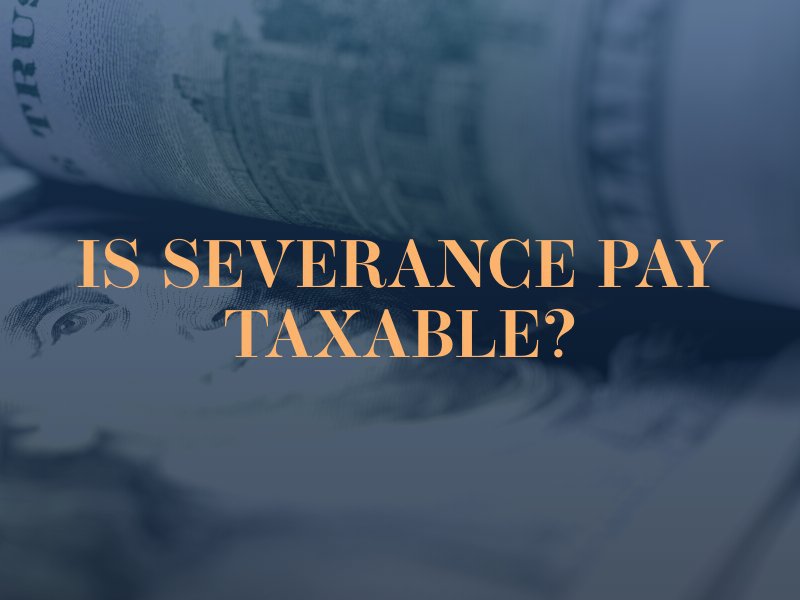When a person leaves their job, whether because they left voluntarily or because of termination or a layoff, they may attempt to make ends meet through severance pay or any other owed compensation (such as pay time off or accrued vacation time). However, many people have questions about whether severance pay is taxable. After all, taxes are a vital, if unwanted, part of all of our lives. Continue reading to learn more about severance pay and if you have any further questions, speak with a knowledgeable Orange County employment lawyer.

What Is Severance Pay?
When most people think of severance pay, they think of large payments made to CEOs of companies when they are forced out of their job. However, regular employees also often receive severance pay upon termination of employment. Severance pay is usually based on how long a worker was employed. However, there is no federal requirement under the Fair Labor Standards Act (FLSA) for severance pay. Severance pay agreements are strictly between an employee and their employer.
How Is Severance Pay Taxed?
Unfortunately, severance pay is taxable. In general, employees and employers both pay a 6.2% Social Security tax and a 1.45% Medicare tax on a person’s wages. These taxes are known as FICA, payroll, or employment taxes.
However, severance pay is typically made after you are done working for the employer. This leads some people to believe that they are not required to pay FICA taxes. However, this is not correct. The United States Supreme Court has ruled that severance payments are indeed regular wages that are subject to regular payroll taxes.
In addition to this, severance payments are classified as “supplemental wages,” which have their own tax policies. Employers are required to withhold 22% of the severance wages and pay the money to the IRS. In 43 states, state income taxes will also be withheld from severance payments.
What Does This Mean for Employees?
Understanding that severance pay is taxable is valuable knowledge for employees who know they will received severance payments. In many cases, employees have the opportunity to negotiate a severance pay package. Because they know they will be taxed, an employee could work with their soon-to-be former employer for a higher severance pay package.
Are There Taxes on Unemployment Benefits?
Many employees receive unemployment benefits after they have been terminated from a job. While it may seem incredibly unfair, unemployment benefits are also taxable. California recipients of unemployment benefits must pay FICA taxes. However, unemployment benefits in this state are not subject to California state income taxes.
What About Unpaid Wages?
In most cases, terminated employees or those who quit their job are entitled to receive their final paycheck immediately upon termination or within 72 hours upon termination, depending on the circumstances. Employers who fail to give an employee their final paycheck on time can face additional monetary penalties for each day they are late. Because these wages are counted as a worker’s regular income, both federal and state taxes will be required to be taken out.
What You Can Do Now
If you have been terminated from your job, or anticipate that you will be terminated soon, you may be able to negotiate a severance pay package. It is a good idea to seek a consultation from a California labor and employment law attorney to help you in these situations. Your attorney may be able to help you negotiate a higher severance package and they will be able to advise you on the tax laws regarding your final payments.

